Today the island is the site of archeological excavations boasting the most important mythological, historical and archaeological significance in Greece. The island is easily accessible by boat from Mykonos Island, just make sure not to let yourself get trampled by the hoard of tourists rushing to get in line to buy tickets. Bring a hat, a shade umbrella, a misting fan, water, a bag of ice…I'm not kidding. As beautiful and fascinating as the ruins are, the blazing sun is merciless on the island and it will make you sweat like crazy!
The highest point on the island provides a panoramic view of Mykonos island and is also the home of many cairns, (piles of stones left by travelers.) These rock piles are often associated with Hermes, the god of travelers and thieves.


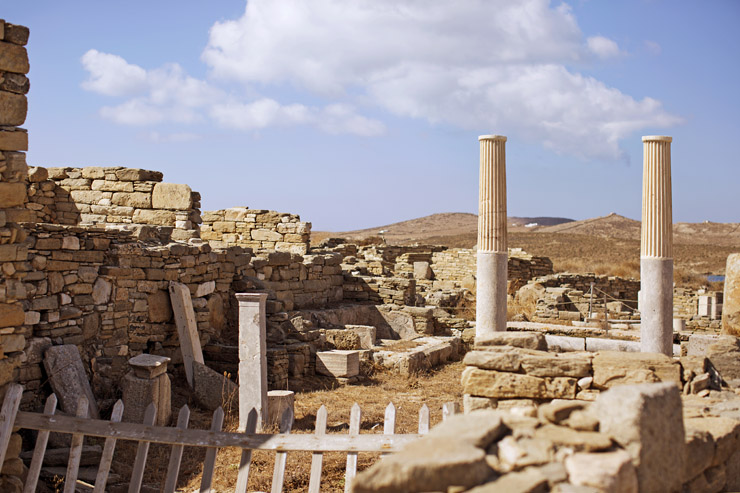
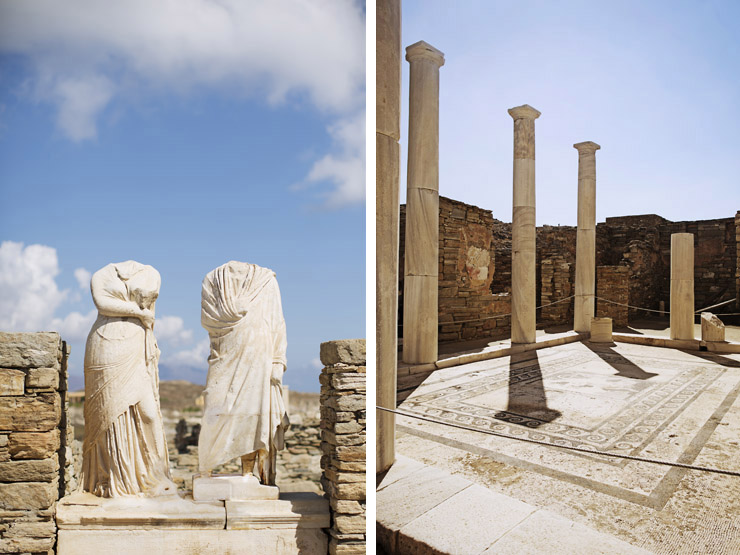
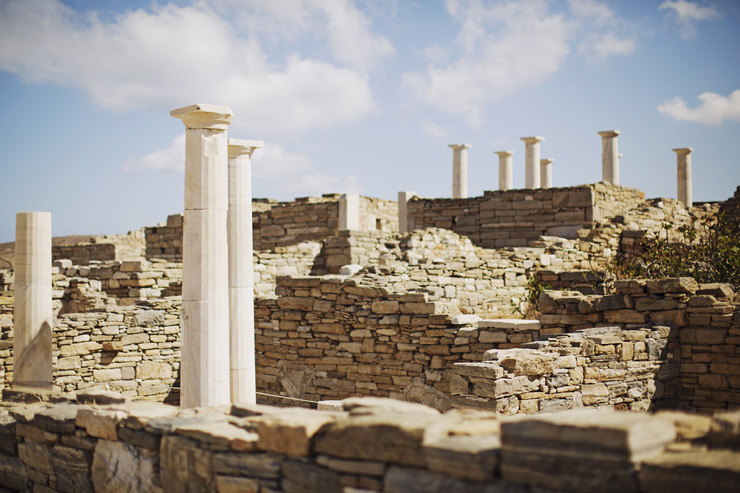
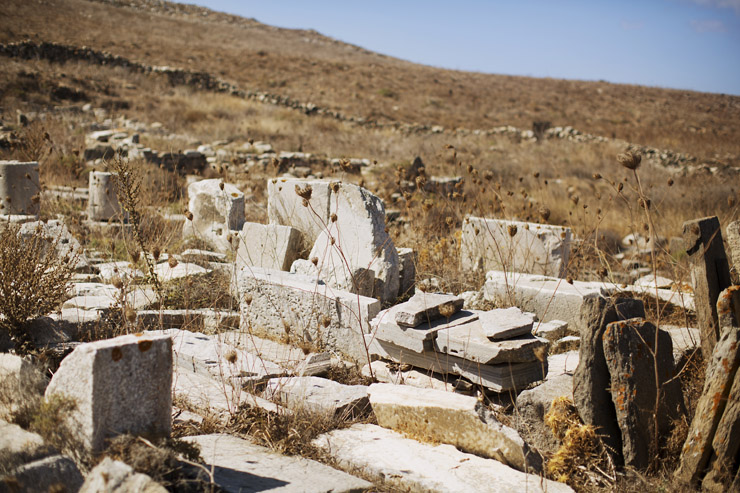
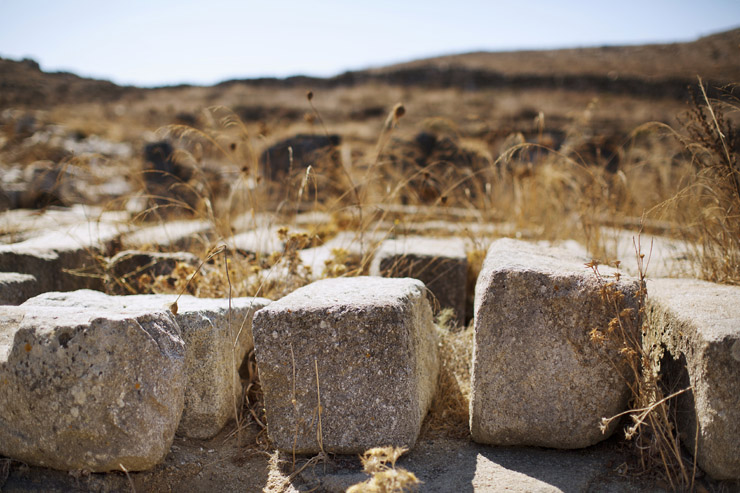
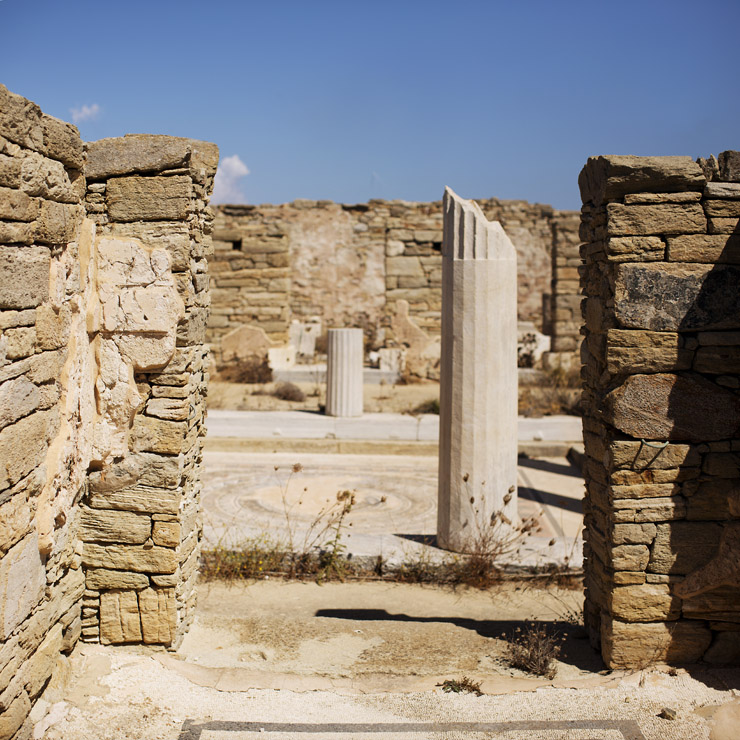



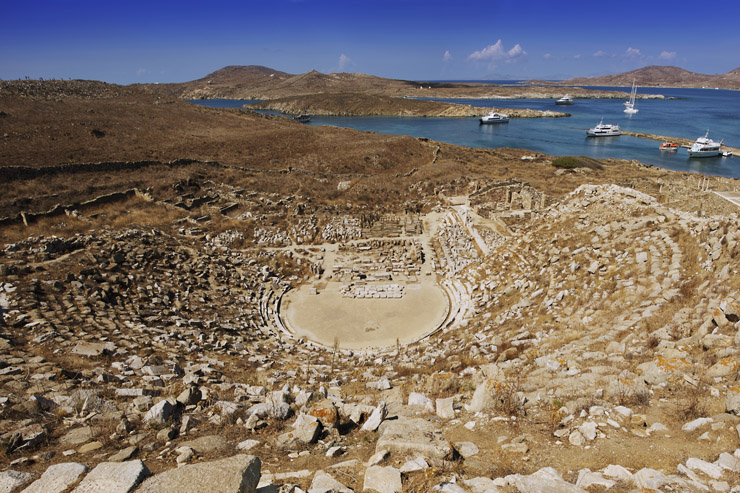

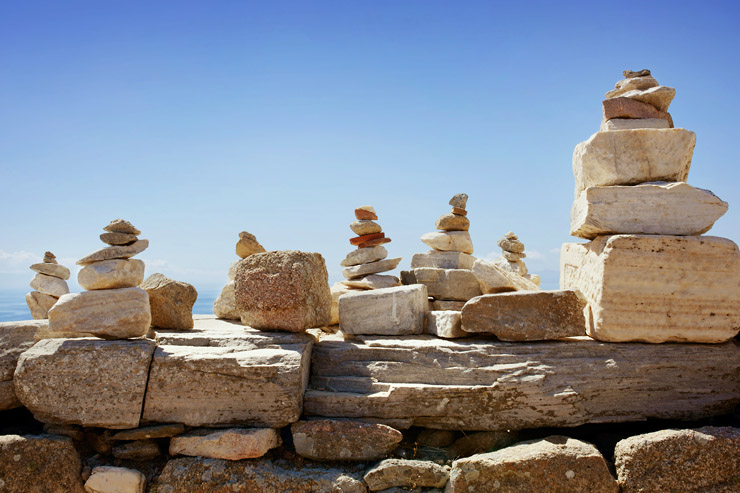


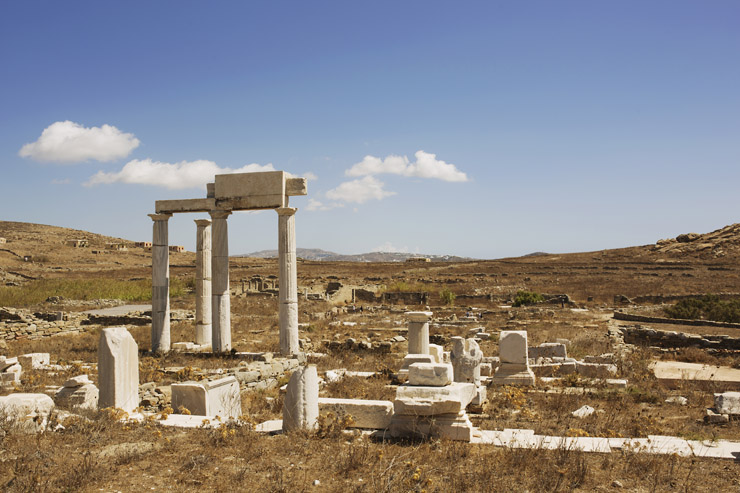
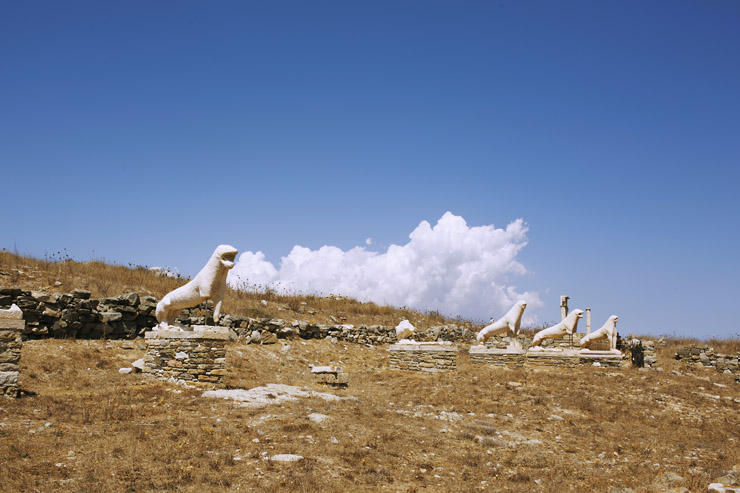
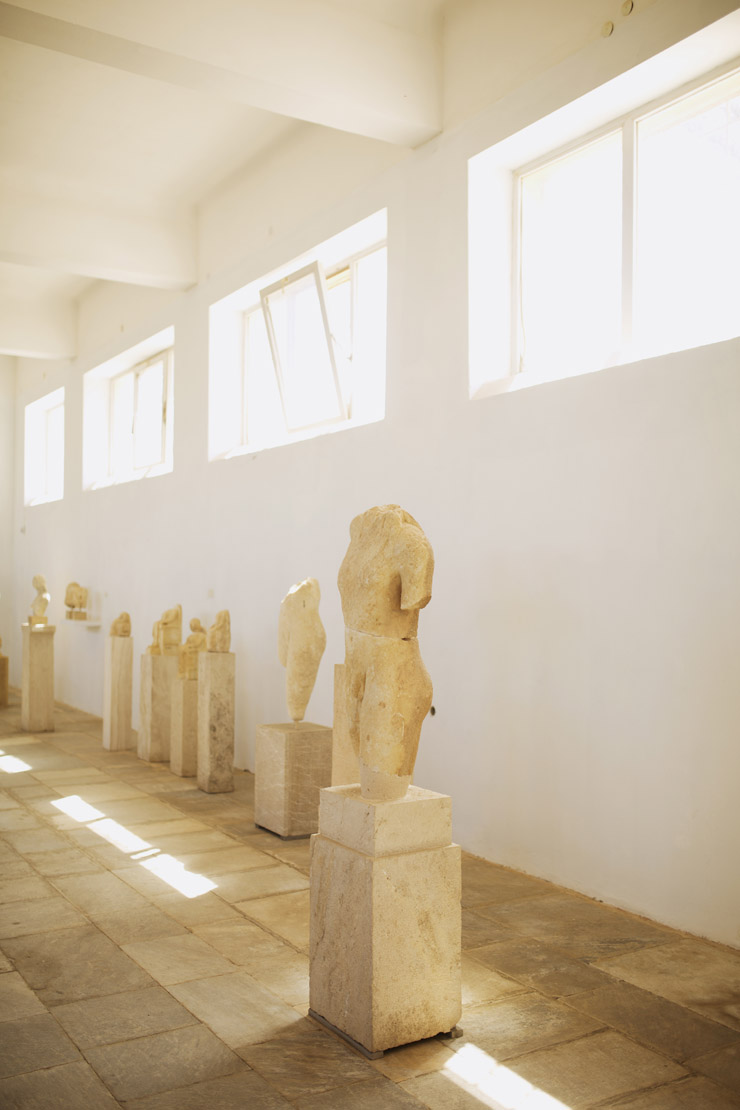
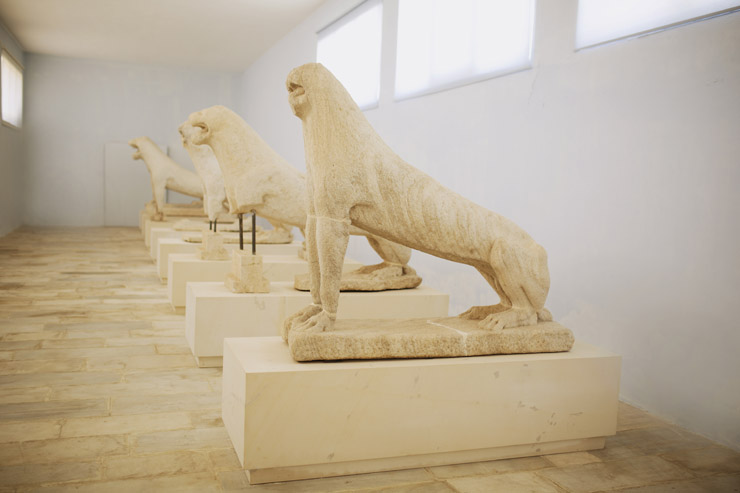


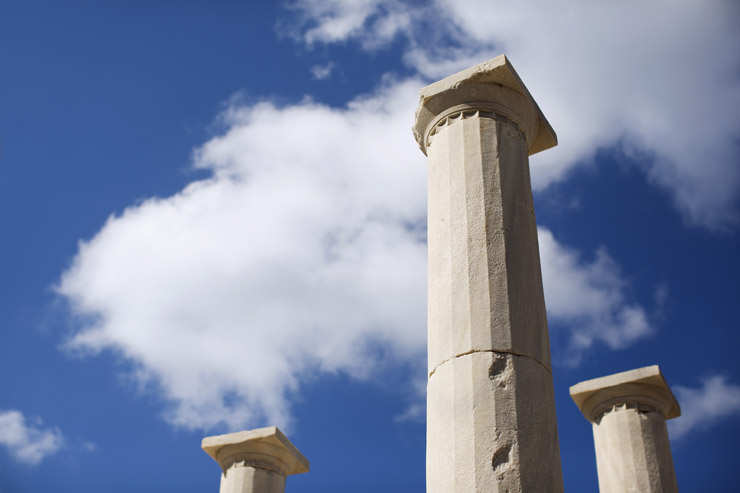
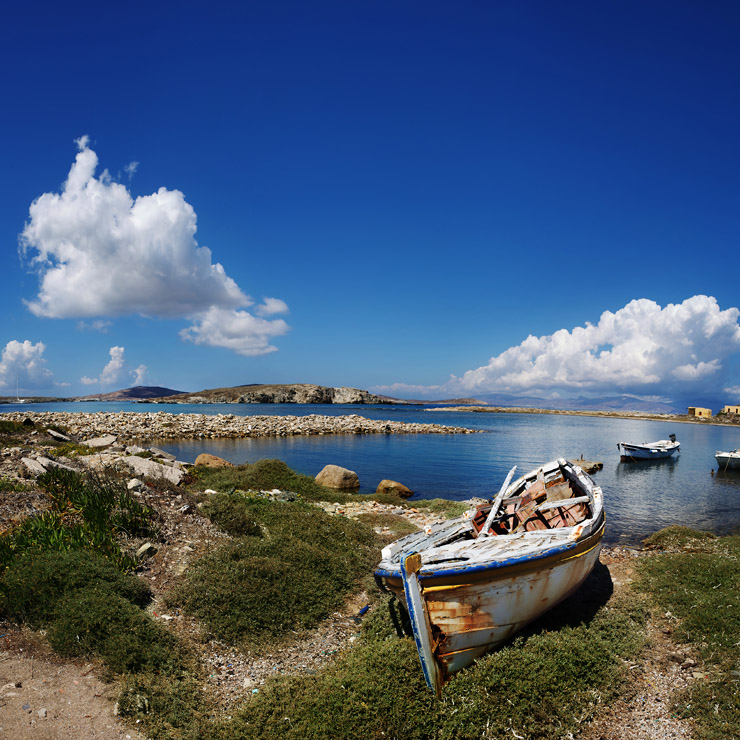
1 comment:
Thanks for the lessons, it stirred more curiosity and I also learned that Delos is considered *Where light was born as well as the birthplace of the immortals. In the ancient times, the myth of god Apollo, god of light, and goddess Artemis having been born there rendered the island sacred: no mortal would ever be allowed to be born on its land, no mortals would ever be allowed to die on it either. "Even during the years of peak of the Delian Alliance, women on the brink of childbirth and people close to dying would be carried to the neighbouring island of Rineia." Curious indeed. ml
Post a Comment